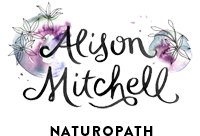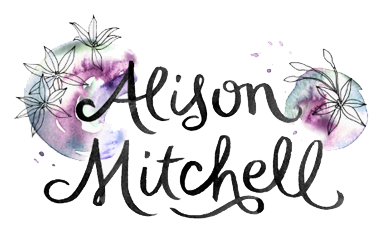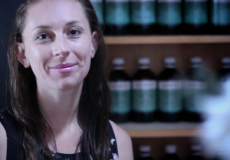Thyroid Problems After Having a Baby
Guts and Girl Bits Podcast #42 with Renae Bartlett
If you’ve just had a baby, chances are you’re feeling tired and worn out. But what is that feeling is not just normal Mum fatigue, but instead a sign that something else is a bit out of balance.
The thyroid is a delicate, butterfly shaped gland that sits on your neck. It is responsible for your metabolism, and when it goes out of whack you can feel tired, cold, depressed and you can experience things like hair loss and dry skin. Sometimes the thyroid can become too overactive, which can make you feel irritable and cranky and cause unwanted weight loss.
During pregnancy and early motherhood your thyroid glands are sensitive to changes in your immune system and nutritional status, and so this is a time where your thyroid is susceptible to having issues.
In this episode I chat with nutritionist Renae Bartlett about her journey with postpartum thyroiditis, what women need to look out for, how to get screened if you suspect an issue, and we discuss some of the ways you can support your thyroid health as a new mother through your diet.
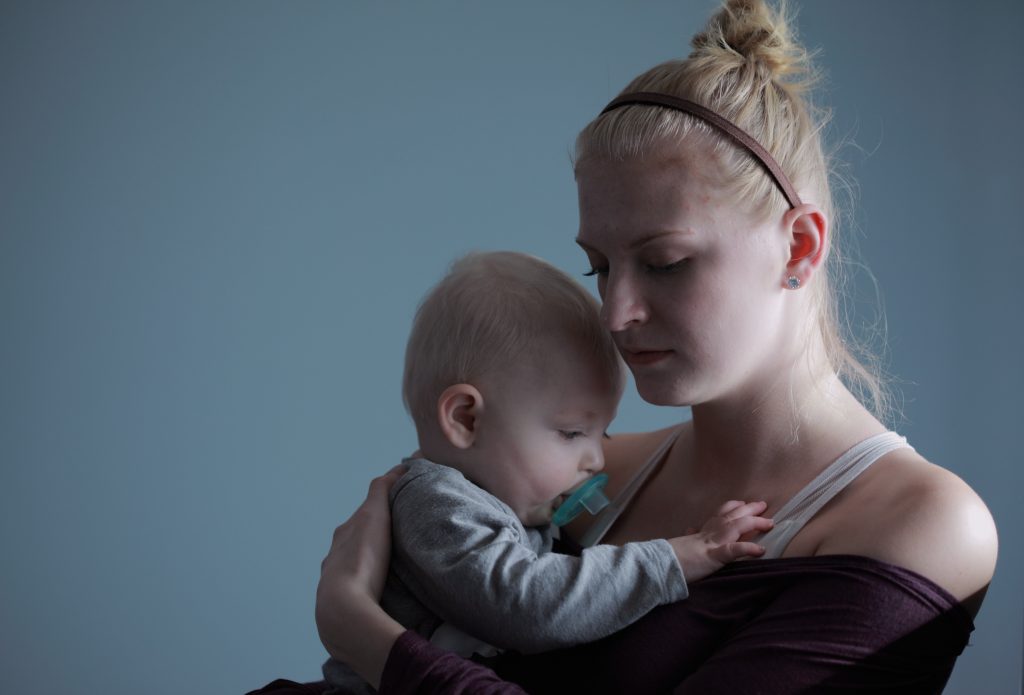
The Podcast
Listen here or via the embedded player below.
Scroll down to read the transcript.
Subscribe Here
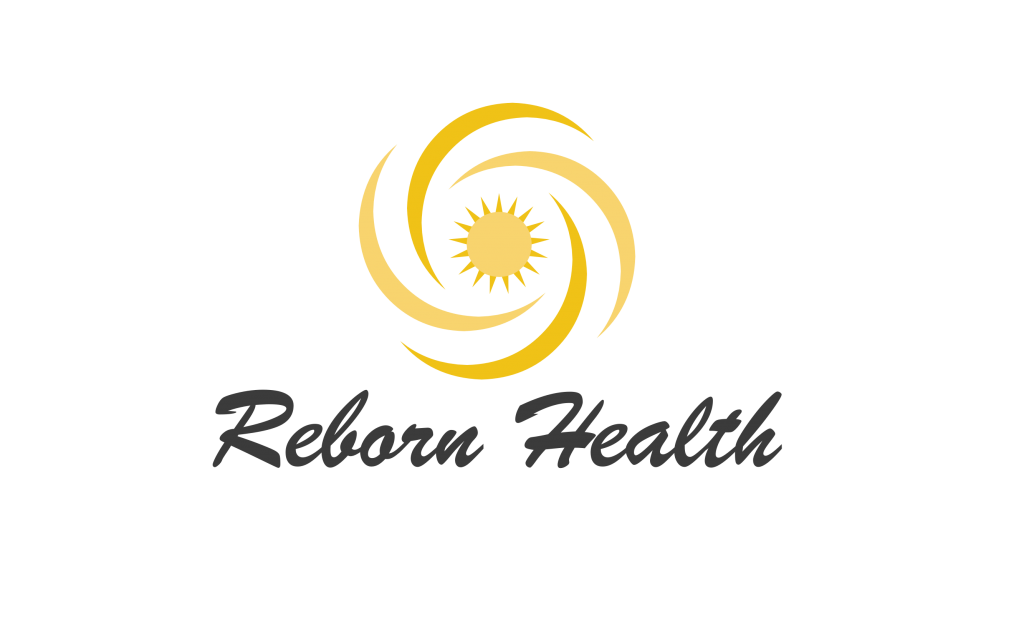
Renae Bartlett is a Clinical Nutritionist who until 12 months ago, was based in Adelaide South Australia. She is currently residing in Canada for the next two years with her husband, one year old daughter and their dog Diego. Renae assists people by focussing heavily on the fundamental basics of using ‘food first’ for healing, health and wellbeing. Renae was diagnosed with Hashimoto’s in 2016 and Post-Partum Thyroiditis following the birth of their daughter in 2018. This has led Renae down a path focussed on helping women who may have been diagnosed with post-partum thyroiditis, or who are at risk of developing this condition.
https://www.instagram.com/rebornhealthnutrition/
Podcast Transcript
Alison Mitchell 0:05
Hi everyone, you’re listening to Guts and Girl Bits. I’m Alison Mitchell a practicing Naturopath. I hope to share with you all sorts of information about women’s health and digestive health to educate and empower you to make informed choices about your own health. Please remember that only information is general and does not replace consulting with a practitioner.
You’re listening to Gut’s and Girl Bits. Today I’m joined with Renae Bartlett, who is a clinical nutritionist who until 12 months ago was based in Adelaide, South Australia. She’s currently residing in Canada for the next two years with her husband, one year old daughter and their dog Diego, and she assists people by focusing heavily on the fundamental basics of using food first for healing, health and well being. Renee was diagnosed with Hashimotos in 2016, and postpartum thyroiditis, following the birth of her Daughter in 2018. This has led Renae down a path focused on helping women who hope may have been diagnosed with postpartum thyroiditis, or who are at risk of developing this condition. So thank you so much for joining me today.
Renae Bartlett 1:14
Thanks, Alison. I’m really glad to be able to speak with you today and your podcast.
Alison Mitchell 1:19
Yay. So let’s start with some basics. So what’s the thyroid gland responsible for in the body.
Renae Bartlett 1:27
So it’s a very important organ that’s part of the body. So it’s part of the endocrine system and its role is centered around producing the hormones that control the metabolism of all of ourselves. So to put that in simple terms, so some of the body functions that it’s involved in is breathing, regulating our heart rate, regulating body weight and body temperature, menstrual cycles, brain function, mood, just to name a few Very, very important organ that’s part of our body.
Alison Mitchell 2:04
Yes, so important so much.
Renae Bartlett 2:06
Yes, a lot.
Alison Mitchell 2:09
All right, and then let’s talk about what is postpartum thyroiditis.
Renae Bartlett 2:15
So postpartum thyroiditis, if we look at the two terms separately, so thyroid-itis means inflammation of the thyroid and postpartum being post pregnancy. So essentially it is a inflammation of the thyroid as a result of having a baby and it causes both hyperthyroidism, so overactive and hypo thyroidism. So an underactive thyroid with hyperthyroid or even happening at first in that instance. So, the main the main difference between postpartum thyroiditis and say other inflammation conditions of the thyroid is that it’s that pregnancy that really triggers it.
Alison Mitchell 3:06
Okay. And how common is it?
Renae Bartlett 3:09
So it’s believed that it’s between five to 10% of all pregnant women will be diagnosed with this condition. But a point tonight is it’s often misdiagnosed. And the reason for this is the symptoms can be very similar to those that are women may experience just by virtue of having a baby. So, for example, you know, the the things such as being fatigued, losing hair, insomnia, weight fluctuations, can easily be attributed to just having a baby when in fact, it may actually be postpartum thyroiditis.
Alison Mitchell 3:49
Yeah. So many of those things people would just get dismissed about like it’s just because you’re a mom, or something along those lines, but it could be so much more.
Renae Bartlett 3:58
Absolutely. And postnatal depression is also something that can be closely linked to postpartum thyroiditis. So it may in fact be the thyroid that’s causing the depression state rather than depression as an as an isolated incident. So, even though it’s five to 10%, it may actually be be more than that.
Alison Mitchell 4:21
For sure, yeah. And how do you go about getting it tested.
Renae Bartlett 4:27
So it’s simply a blood test after having a baby. Important to note that symptoms generally won’t start until about six weeks after having a baby. So it’s probably important to speak to clinician about the independent factors that may require the blood test at certain times. But generally recommendation would be around about that. Two month period postpartum and then monitoring after that.
Alison Mitchell 4:57
So if say a woman has been feeling Okay for the early stages of the postpartum period, and then she starts to feel a bit more downhill is that way you’d be thinking maybe it’s the thyroid connection,
Renae Bartlett 5:09
it could very well way and it’s just simply a blood test that it there’s nothing terribly invasive about really saying whether someone may have a thyroid condition after having a baby. And it can simply confirm whether that is something that needs to be further looked at and treated, or it can, it can then be be lumped into another condition and go down that path. So I would certainly recommend for women who have had a baby to have their thyroid tested, regardless after they’ve had had their baby, but certainly those that are in the risk group of developing the condition.
Alison Mitchell 5:50
And does your thyroid function actually changed during pregnancy as well like is this process starting earlier than postpartum?
Renae Bartlett 5:59
So Things happen a lot with pregnancy and the thyroid, think of it like a stress test for your thyroid when you fall pregnant. And the reason for this is that the first trimester, the baby is 100% dependent on the woman’s thyroid. So if there’s already an underlying issue there or even a known issue of of thyroid dysfunction, the that can have have severe implications for the woman’s first trimester of pregnancy. And unfortunately, in some cases, this is where complications such as miscarriage can occur. Between because the thyroid and the body in general cannot sustain the mother let alone the baby as well. If the pregnancy does manage to continue, the baby will then start in that second trimester to use its own thyroid to function and then from about 18 to 20 weeks. The baby will then start producing time for thyroid hormones. So when you look at that, for for someone that may have dysfunction, you’ve got the first potentially 20 weeks where that that woman needs to produce enough thyroid hormones for herself and for her baby as well.
Alison Mitchell 7:19
Yeah, okay. So it’s under a lot more pressure during that period of time. Yeah. And I guess because you know, your thyroid is dependent on certain nutrients as well. So if there’s going to be a funneling of nutrients into the baby, then that’s going to be leaving the mother a bit more deficient, possibly. And then, like you said, there’s an immune involvement too. So I guess that would have an impact.
Renae Bartlett 7:47
Yeah, absolutely. So, an important thing to differentiate is the the immune system is suppressed during pregnancy to account for the fact that the body is essentially creating something that’s foreign. So some people may actually notice if they have a autoimmune condition that their symptoms tend to be a lot better when they’re pregnant in some cases, because that immune suppression, that rebound effect after pregnancy, typically from about the six weeks and certainly in postpartum thyroiditis is is what really drives this, this thyroid inflammation and it’s that rebound of the immune system kicking back in and then going into overdrive. So there really is that the two parts playing in developing this condition, certainly.
Alison Mitchell 8:39
For sure. Okay, so, we’ve talked about, you know, how some of the symptoms that are very similar to that postpartum period generally for women like insomnia and fatigue and possibly depression, are there any other symptoms that women should look out for that might suggest that they have a thyroid issue, possibly during and post pregnancy.
Renae Bartlett 9:02
Yes. So during can be incredibly difficult when you’re just looking at symptoms. And that is because the symptoms are very similar to those that you would experience as a result of being pregnant. So for example, there can be weight changes, typically, weight gain, there can be lack of sleep, there can be irritability, anxiety, there can be mood changes, there can be skin and nail changes. So dry skin, brittle nails, all of those are quite common symptoms in particularly hypothyroid saints, but also their common symptoms that you get when you’re pregnant. Right. So, diagnosing during pregnancy is most often by blood tests, but that usually is monitoring the thyroid to see how it is coping with pregnant. Certainly after pregnancy, if a woman is in that hyperthyroid state, she’s going to experience things like increased heart rate. That could be tremors, heart palpitations, overheating, heat intolerance, insomnia, irritability, anxiety. And then when the condition swings to hyperthyroid, if that does occur, then it goes the other way. So things like fatigue, hair loss, poor memory, constipation, cold intolerance and depression are some of the main things that you would say. Okay.
Alison Mitchell 10:43
So the blood test that we’d be looking at is that typically your TSH and if that’s out of balance, then your T3, T4 and your thyroid antibodies is fairly similar to your standard thorough tests.
Renae Bartlett 10:56
Yeah, that’s correct. Yeah. Okay.
Alison Mitchell 11:00
Are there any predisposing factors for developing past postpartum thyroiditis?
Renae Bartlett 11:05
Yeah, there is. So there’s certainly a strong link between having thyroid autoimmunity before pregnancy. So typically the the TPO antibodies. Also there’s a history of thyroid dysfunction previously, and that can even be transients or may not even be be permanent. If there’s been a family history of any thyroid disorders, or a previous history of postpartum thyroiditis in another pregnancy, and also other autoimmune disorders, particularly type one diabetes, they’re at high ris k of developing this condition.
Alison Mitchell 11:51
Okay. And so it is something that does tend to recur so like if you’ve had it one pregnancy, you’re likely to get it another time.
Renae Bartlett 12:00
Not necessarily at the moment, it’s estimated that about 20% of recurring. So that is some good news that it doesn’t mean that for every pregnancy a woman is necessarily going to continue to have postpartum thyroiditis. It may be one time timeline in which is good news as for that, that 20% it tends to be women that have very high anti thyroid antibodies, where their TSH levels are not in the normal range when they fell pregnant, so certainly about about five I believe or even above 10 and that that is the most likely risk factor for perhaps having it recur.
Alison Mitchell 12:51
Okay. Now, I know that you’ve had a bit of a journey yourself with this, is it something that you would be able to share Your journey with postpartum thyroiditis?
Renae Bartlett 13:02
Yes, certainly. So, I was aware that I had a pre existing thyroid condition before I fell pregnant. And I did have some some difficulties falling pregnant. And I do believe it was it was probably due to my thyroid condition. So once I was successful in falling pregnant, I made sure that I monitored my thyroid levels throughout pregnancy. And I wasn’t on any thyroid medication either. So it was more to just make sure that my body was handling it appropriately. Thankfully, it was everything went along really, really well. I had a really wonderful pregnancy, wonderful birth. And then after having my baby at about three months postpartum, I felt generally quite well but I thought I really need to go and just make sure that my thyroid is functioning as it should. And knowing that I had a previous history I thought that would be a good idea. As it turned out, I was very hypothyroid. Much to the surprise to myself and my, my doctor, because I wasn’t really presenting with very strong symptoms, which I came to find is relatively common. It’s more of a hypothyroid state. If it does swing to that word becomes quite known that there may be an issue. And so I monitored my bloods every four weeks, and I believe after about two months, I then transitioned into hypothyroid. And I did then certainly start to notice symptoms. For me, I had extreme fatigue. I would say quite Moody, you know, crying without really understanding what I was crying about. I can remember one day I was out walking my dog and it was a beautiful day and I started crying and I’m like, Why on earth? am I crying? This is not know. I don’t really understand what’s going on. So luckily for me, I knew that it wasn’t just as a result of having a baby and I knew that wasn’t me going crazy and thinking, you know what? What’s going on? I knew that it was my thyroid driving this and I think that really helped me in dealing with it appropriately and just letting my body try and regulate itself, rather than trying to figure out what was wrong with me, in an essence, so I thought, quite lucky that I managed to do that. And then I ended up deciding to take thyroxine because I felt as though I was lucky that my symptoms were okay but I didn’t know how bad I could get and given my history of having a thyroid condition, I thought it best to go that action. And my doctor said, You know what, let’s, let’s give it a go. And if it’s at a time we feel it appropriate, we can see if we can when you offer and take it off and see how your body handles. So I really liked that approach that, you know, we can just try and manage it how we can and then and then see how my body adapts to it at some point, so. So yeah, that’s kind of been my, my journey with it so far.
Alison Mitchell 16:30
Well, thank you for sharing that. Yeah. And I love how much you were trusting your own body to go through those processes as well.
Renae Bartlett 16:37
Yes, sometimes you’ve just got to take your hand off the wheel, I think and just let it do its thing.
Alison Mitchell 16:42
Yeah. So did you find that it affects breastfeeding?
Renae Bartlett 16:49
I was very fortunate that it didn’t affect my milk supply. I was able to breastfeed and I still am now. My baby will be one in two weeks. So thankfully, I am have been able to do that. But it certainly can affect milk production and is a common symptom in women that have thyroid issues. So it’s certainly can can impair that. Hmm,
Alison Mitchell 17:14
well, hooray for extended breastfeeding. I’m a big fan of that.
Renae Bartlett 17:17
Yeah. Yeah. I felt a sigh of relief when I knew that. That was something that I didn’t have to worry about. Yeah,
Alison Mitchell 17:25
yeah. But it’s so interesting, the way that it expresses differently and everyone and how this the different interplay. So it’s not just a straightforward thyroid effects product and no, it’s there’s other things involved.
Renae Bartlett 17:39
Yeah, yeah. Yeah. And you’re so right. And this is where really getting to know yourself, I could have easily spent my entire postpartum period, not even knowing that I had postpartum thyroiditis. Honestly, I really could have because you could have just easily put the things I experienced down to having a baby It’s just it just really presents so differently to any to everyone really? Yeah, symptoms really do vary.
Alison Mitchell 18:08
Yeah, and I do observe quite a lot of the time that it is uncommon to get this thorough testing done even as a general screening. And sometimes, you know, you can be having done it too early, or you might because the thyroid changes so much as well. Like sometimes you do need to repeat a TSH and go up and down and by itself, it’s not always that great an indicator, so you might need to get that complete picture of the testing with antibodies.
Renae Bartlett 18:37
Yeah, absolutely.
Alison Mitchell 18:40
Alright, so knowing what you know now, like say, theoretically if you were to have another bubby. would you do anything to look after your thyroid, preconception or during pregnancy to try and prevent this from happening or, or how would you advise other women to look after their thyroid to prevent it.
Renae Bartlett 19:01
Yeah, so that’s a really good question. Because I have looked back and gone ‘What What could I have done?’ I was really good at at having having a really great, very varied diet you know, a good amount of vegetables, fruits, quality protein fats, I started taking a really good quality prenatal vitamin, three months before pregnancy, fish oil, all of that. The one thing that I didn’t do that I would be really interested to see how that would go and that is taking a supplement of selenium. And the reason why I say Selenium is there has been some clinical studies done that shows some promise in that Selenium supplementation during pregnancy. Even with women that has positive antibodies does significantly reduce the risk of postpartum thyroiditis so I caution that we saying further studies need to be done and certainly it’s not the be all and end all that you know, you take Selenium and you’ll be fine but it is quite promising to show that that nutrient did show some improvements in a study that was done I believe in 2011 so that’s one thing that I didn’t do and I think that’s something that I would I would probably look at and I doing with my next pregnancy
Alison Mitchell 20:35
Yeah, it’s interesting and you know, there’s a lot of multivitamins out there that are pregnancy targeted that have virtually like, you know, very little Selenium in them. Yeah, taking a better quality multivitamin is advisable and or taking some additional selenium anymore. At the very least, I guess eating more Selenium rich foods. but that’s so hard to do, isn’t it? Because
Renae Bartlett 21:01
Yeah,
Alison Mitchell 21:03
A bit hit and miss in foods.
Renae Bartlett 21:05
It is and it varies so MUCH. And then of course, you know, you want to you don’t want to just be taking taking pills all the time, you know, and trying to remember to do that, especially if you’ve already got got children I’m a big advocate for trying to use food as much as you can rather than relying on supplements but with pregnancy there is that increased demand and you know, if it means that it could, could possibly help you after pregnancy then it’s it’s a it’s something worth looking at, if you if you can.
Alison Mitchell 21:42
For sure. And what sort of dosages he generally looking to work within the range of because I know that many people are a bit hesitant to do higher doses of selenium.
Renae Bartlett 21:55
Yeah, so, the study that I that I spoke about that showed some Promise the supplementation was at 200 micrograms a day. The upper limit for Selenium is often recommended for 150 micrograms per day. I feel quite comfortable that if someone wanted to try, try that under the useful direction of a qualified nutritionist or naturopath, that 200 micrograms would be suitable and ensuring that there isn’t Selenium coming from other sources that might push that too much further over the edge. I think I think that that is a safe, a safe way and actually shining in studies that it might be useful.
Alison Mitchell 22:43
Yeah. And you know, a nutritionist or a naturopath could guide you with that, I guess. Yeah, absolutely. even look at monitoring your levels through your Bloods and making sure that they’re not going in a pattern that’s a bit uncomfortable for you.
Renae Bartlett 22:57
Yeah, yeah, that’s right. Yeah. Cool.
Alison Mitchell 23:01
So are there some other areas that you often look at supporting women with postpartum thyroiditis?
Renae Bartlett 23:08
Yeah, look, stress is a huge, huge, huge factor. And I know that gets thrown around a lot. I know, you know, nearly every condition you can think of, you know, you get told look out for stress, but honestly, it is so big in driving this condition, it’s not funny and it can be so difficult. You’ve just had a baby, and then you’ve got someone telling you to Oh, you know, just don’t stress so much. And you know, look at that, yeah, that’s really great. But if there are things that you can try and do, whatever it is, whether it be five minutes of meditation just before you go to sleep, or maybe it might be just going out for a walk with your baby or maybe just catching up with some girlfriends, for coffee once a week, whatever it is, just try and do that. That whatever it is that kind of makes you feel that you can just let it out, you know, be writing things in a journal or exercising and he can, you know, all of these things really will play a part in, in trying to reduce that that cortisol and that stress that can really be making this condition a lot worse than what it should be.
Yeah, for sure.
Alison Mitchell 24:22
Yeah.
So stress is a really big one.
Renae Bartlett 24:25
Yeah, yeah. It’s huge. Yeah.
Alison Mitchell 24:30
Great. Are there any other areas that you often look at?
Renae Bartlett 24:34
So nutritionally, we’ve spoken about Selenium. There is also, I guess, when we look back at the pregnancy status is having sufficient iodine to support the thyroid function during pregnancy, and then continuing that for breastfeeding as well. That’s really important. And I think it’s often a nutrient that does get overlooked when you look at prenatal support. So that’s something that really is important. So iodine and selenium for that nutritional and then for postpartum when I look at nutrition, I like to try and simplify it and go you know you’re already trying to reduce your stress let’s not stress it out anymore by you know, throwing these hardcore diet things in there. Let’s make it really simple. You know, think of food first try and think of of getting things as fresh as possible. By you know, going and getting vegetables and fruit just starting with that getting some protein sources. Even if you need to buy frozen vegetables and and cook that up on a meal that’s perfectly fine. You know if that’s going to save you a trip to the supermarket, when you’ve got other things going on. Do that you know, if you need to keep eggs in the fridge so that you can just do some scrambled eggs for dinner. Do that, you know, try and simplify your nutritional routine. Don’t overthink it. Don’t. Don’t try to be this fantastic mom who can just do it all just simplify it, you know, as long as you’re able to eat well. With basics, you’ll be fine. You really will.
Alison Mitchell 26:27
Brilliant. Yeah, yeah. It’s so important for mothers to just eat.
Renae Bartlett 26:32
Yeah.
Alison Mitchell 26:33
Yeah. So easy to just like, you know, let that part of your life to stop because you know, you’re worried about the baby and of course, but you gotta eat.
Renae Bartlett 26:44
You do, you do have to eat and you know what, get when people come to visit you don’t get them to bring gifts of you know, more baby clothes and things like that. Tell them to bring food. Say: “Bring food! What I need, you know, that’s the best gift you can give a new Mama.” Yeah. Yeah, certainly in the month after Don’t forget, you know, they’re still trying to to raise a little human being there. So. Mm hmm. For sure.
Alison Mitchell 27:15
Yeah, for sure. And I always think about iron when it comes to thyroid health as well. Is that something that you look at?
Renae Bartlett 27:23
Yeah, absolutely. And particularly after giving birth, because women will often lose blood as a result of childbirth. So making sure that iron levels are adequate is is really important for that for the thyroid to function. Now, so yeah, that’s that is a very important nutrient. Absolutely. Yeah, for sure.
Alison Mitchell 27:46
Okay, and any, any other areas?
Renae Bartlett 27:50
So we, I guess we’ve touched a bit on nutritional and then the emotional or sorry, well, the lifestyle side of trying to reduce stress, but I think that emotional support is Well, because postpartum thyroiditis is really not known by many people, I think it’s really important to be open and honest with those in your family, your support networks, let them know that, you know, you don’t just have the baby blues that you you know, you are going through something and it can be transients at times between your symptoms, and to just get that added support. So that’s probably my my main take home is look at your emotional support. Lifestyle, you know, try and reduce your stress and nutritionally try and keep it simple by eating the best that you can when you can and don’t overcomplicate it. Yeah, for sure.
Alison Mitchell 28:44
Yeah. Okay. So, can you give some women that have having postpartum thyroiditis or worried about it, three actionable actionable steps that they can do?
Renae Bartlett 28:57
Yeah, so, I guess Further on to what I just I just mentioned then, first of all, figure out who your support network is. Talk to someone about your your condition and how you’re feeling and and really get them to help you in whatever that is for you. It may be getting someone to bring you food, it may be someone helping out with the baby might be someone to just catch up with the coffee, whatever that is. Number two, really try and figure out a way that you can reduce stress in your life. As much as that may be a difficult task for you, even if it’s just five minutes to try and have some time where you just sit there and and write in a journal, read a book, meditate, whatever it is go for a walk. It’s really important. And then third of all, really try and figure out with your nutrition, what you can do with minimal stress on yourself. So whether that Is meal planning so planning out your meals for the week and doing one shop if that works for you brilliant do it if that’s going to enable you to eat the best way you can then do it. If it’s cooking a lot of food and freezing it do that. If it’s having frozen vegetables, boiled eggs, nuts in the fridge, things that you are ready to go because maybe you’re not someone that doesn’t batch cook you’re not someone that doesn’t meal plan you just ate as you go has those things ready there for you. So try to simplify it but stick to foods that are going to give you the most nutrient dense so you know any of you vegetables, fruit quality protein sources, so eggs, meat, tofu. Lovely whole grains think of quinoa, think of making some lovely muffins with spelt, buckwheat, all of those kind of things are really going to be helpful for you. In that postpartum phase, make sure you’re ea ting.
Brilliant. All right and last question for you. What is your favorite food for thyroid health?
Okay, so this is difficult because there’s so many great ones but I’m going to have to go with the very simple egg. The reason being is it’s full of so many wonderful nutrients that are going to support your thyroid so it does have iodine, it has a lovely amount have a really lovely fats which is going to do wonders for your your skin, can do wonders for your hair, protein as well that’s going to support your immune system. And it’s such a versatile food, boil it up, have it as a snack. scramble it have it for breakfast, mixing something vegetables, all that kind of thing. So I think I’m going to go with the humble egg.
Alison Mitchell 32:04
I think that’s a great answer. Great. So thank you so much Now Renae, do you have any offerings on at the moment?
Renae Bartlett 32:14
So at the moment, I’m currently working on a couple of things within my business. So at the moment, I’m looking at putting together a series of helpful, simplified food tips. So that’ll be a compilation of videos, how to shop guides, how to cook guides, but simply for your family. I’m hoping to have that finalized within the next six to 12 months. And also some ebooks on how to look after your thyroid after having a baby.
Alison Mitchell 32:50
Beautiful. Yeah. Oh, well, that’d be so good. Yeah. Okay. Thank you. And if people want to know more, how can they get in touch with you?
Renae Bartlett 32:59
So They can get in touch with me My business is Reborn Health. So the most effective way is just send me a message on facebook Rerbon Health Nutrition. And I’m also on Instagram as well, which is also Reborn Health and Nutrition.
Alison Mitchell 33:15
Great. And I’ll put the links for those in the show notes as well.
Renae Bartlett 33:18
Great.
Alison Mitchell 33:19
So thank you so much for sharing all this wonderful information today. It’s been an absolute pleasure talking with you.
Renae Bartlett 33:26
It’s been great, thanks so much for having me.
Alison Mitchell 33:29
Yay. So thanks, everyone for listening. Please hop on and leave us a five star review. And if you have anything you want to learn about in the future, don’t hesitate to ask. So thank you, everyone.
Renae Bartlett 33:42
Bye bye.
Transcribed by https://otter.ai
